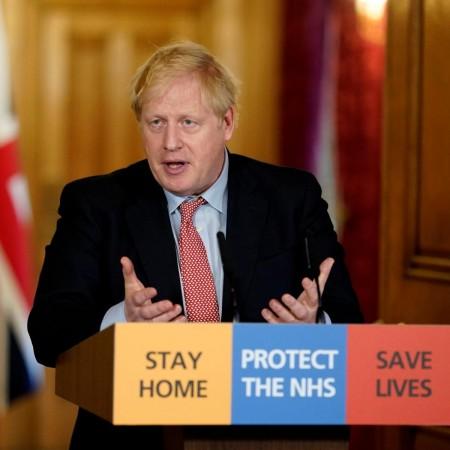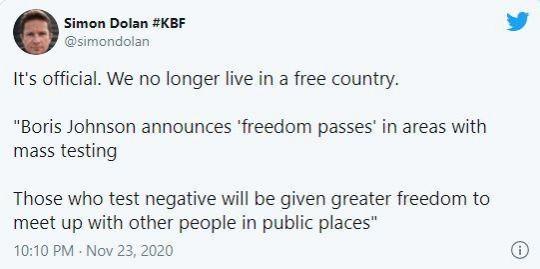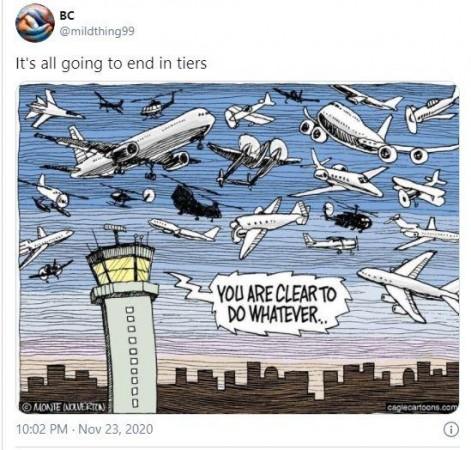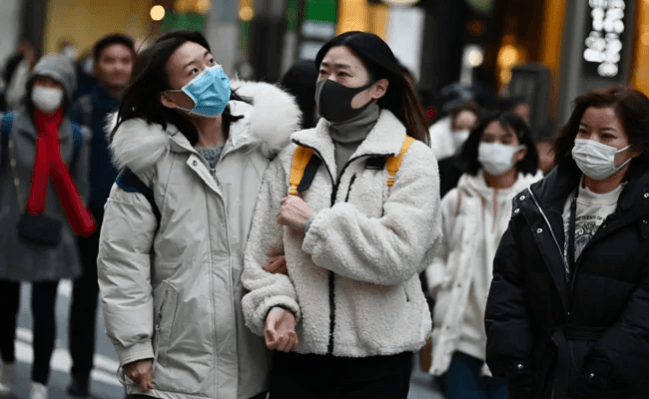Millions of Britishers headed for stay-at-home measures last month as the country battled to get a grip on the second wave of COVID-19 that is worsening the highest death toll in Europe. The government boosted a jobs support package and imposed its most stringent measures on the city and its surrounding region, following bitter resistance from local leaders who wanted more financial aid.
But easing the quarantined lives of many, UK Prime Minister Boris Johnson on Monday announced to completely lift stay-at-home orders in England by December 2, while bracing his people up for a tough new multi-tier COVID Winter Plan that is being planned to continue until at least March 2021, as per British media reports.

Addressing the House of Commons via videolink from Downing Street in London, where he continues to self-isolate after contact with an MP who later tested positive for Covid-19, Johnson began by praising "the scientific cavalry" which has offered vaccine hopes to eventually make lockdown "redundant". But he stressed that it is important not to "squander all our gains" from the past few weeks of lockdown with a "free for all".




From the middle of next week, shops, personal care, gyms and churches can reopen as part of a bolstered three-tiered system. As part of the restrictions, people will be expected to continue to work from home if they live in a Tier 1 region; in Tier 2, alcohol can only be served with a meal; and in Tier 3, all forms of hospitality except takeaways will have to close.
The 10pm curfew for bars and restaurants will now change to last orders at 10pm (local time), with closing time at 11 pm (local time). Sports will be allowed to resume with spectators in the first two less strict tiers, with capacity limits and social distancing, including a similar approach for theatres and concert halls.
The second lockdown in England began from November 5 after infected cases of the dangerous bug surpassed one million. Pubs, bars, restaurants and non-essential retail will close until 2 December and people will be told to stay at home unless they have a specific reason to leave. However, unlike the last time, schools, colleges and universities will remain open. People will be allowed to meet with one person from another household and sit with them in a park as long as they follow social distancing guidelines.
Johnson places the UK on its initial lockdown, in late March, in a rare televised address from Downing Street. He ordered people to only leave the house to shop for basic necessities "as infrequently as possible" and to perform one form of exercise a day. He also said they could seek medical help, provide care to a vulnerable person or travel to work if "absolutely necessary".

When did lockdown begin in the UK?
The announcement came several days after bars, pubs, restaurants, cinemas, nightclubs, theatres, gyms and leisure centres were told to shut their doors to customers upon the prime minister's orders. On May 10, Johnson announced 'Stay at home' orders to become 'Stay Alert' and announced certain changes in the lockdown measures. On July 4, he announced families can be reunited, drinkers can enjoy a trip to the pub and people can go on holiday.
Considering the pandemic to be an unprecedented form of global crisis and the countries have implemented restrictions on population movement, it has been derived that lockdowns and other extreme restrictions cannot be sustained for the long term in the hope that there will be an effective vaccine or treatment for COVID-19. When and how a country should ease restrictions are the common challenges that governments worldwide now face as they seek to balance various health, social, and economic concerns.
The World Health Organisation has warned that a premature lifting of lockdowns could spark a resurgence of infections and cause even more severe, longer-term damage to the economy than exists as a result of lockdowns. Rules of community management, public-health capacity, measures of border control and infection status should be practiced appropriately even while meeting each other post lockdown.
The UK has so far reported 1,515,802 cases of coronavirus along with 55,120 deaths, according to Johns Hopkins University.

















